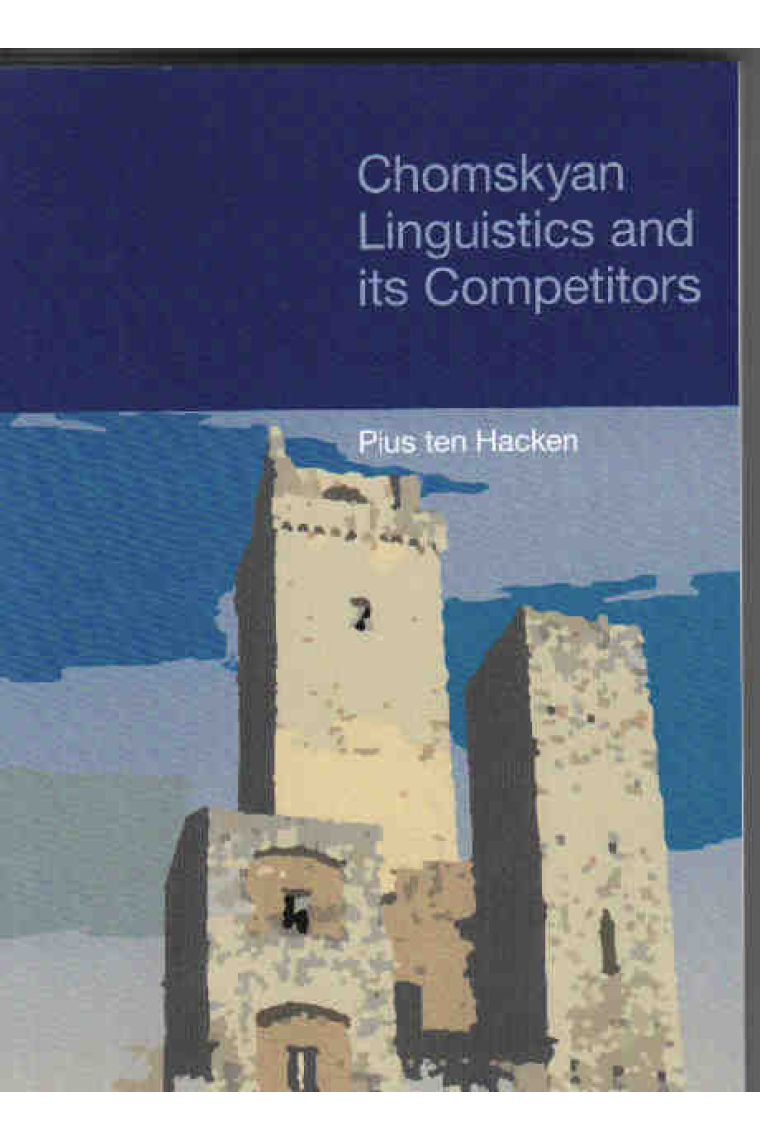Detalles del libro
Description: This work explains Chomskyan linguistics in an accessible and balanced way. It takes objections that have been made to the assumptions in the research programme seriously and explains why these assumptions can and should be made. It explains the differences between Chomskyan linguistics and its main competitors without bias. This will help the reader to understand research articles in different frameworks. It shows how areas of linguistics that are not central to Chomskyan linguistics can be incorporated within this framework. Noam Chomsky is not only one of the most influential, but also one of the most controversial figures in 20th century linguistics. In view of the polarization of opinions on Chomsky, giving a balanced account of Chomskyan linguistics is an ambitious venture. The approach chosen here is to describe both Chomskyan linguistics and the positions defended by its opponents in terms of research programmes.A research programme consists of a number of assumptions on what language is and how it should be studied. Only by assuming that research programmes adopted by a large number of scholars for a prolonged period have to be rational, coherent systems can we hope to fully understand the nature of the conflicts between them. After a general discussion of the notion of research programme, it is shown how the various stages of Chomskyan theory can be analysed as belonging to a single, coherent research programme. This research programme is then compared to the ones for Post-Bloomfieldian linguistics, Lexical-Functional Grammar, Generalized Phrase Structure Grammar and Montague Grammar, and Head-Driven Phrase Structure Grammar. Finally the relevance of the research programme of Chomskyan linguistics for the practical study of the acquisition, change, and use of language is addressed.
Contents: 1. Research programmes1.1. The Empirical Cycle1.2. The Role of Research Programmes1.3. Truth, Progress, and Revolutions1.4. Research Programmes in Linguistics2. The Research Programme of Chomskyan Linguistics2.1. The Nature of Individual Languages2.2. The Nature of Data 2.3. The Function of Grammars2.4. The Role of Language Acquisition2.5 The Unity of the Research Programme of Chomskyan Linguistics from its Emergence to the 1980s2.6 The Position of the Minimalist Programme in Chomskyan Linguistics 3. The Chomskyan Revolution3.1. The Research Programme of Post-Bloomfieldian Linguistics3.2. A Comparison of Two Research Programmes3.3. Has There Been a Chomskyan Revolution?4. Some Modern Competitors4.1. Lexical-Functional Grammar4.2. Generalized Phrase Structure Grammar 4.3. Head-Driven Phrase Structure Grammar4.4 Jackendoff's Linguistics5. Aspects of Language Development and Use5.1. The Nature of Named Languages5.2. Empirical Aspects of Language Acquisition5.3. Second Language Acquisition5.4. Language Change5.5. Language and Communication
Author Biography: Pius ten Hacken is Lecturer for Linguistics and Translation at the School of European Languages of the University of Wales Swansea. He is the author of Defining Morphology (G. Olms Verlag, 1994) and the editor of Terminology, Computing and Translation, part of the Forum für Fachsprachenforschung (G. Narr, forthcoming).
- Encuadernación Tapa blanda
- Autor/es HAcken, Puis Ten
- ISBN13 9781845535544
- ISBN10 1845535545
- Páginas 366
- Año de Edición 2004
- Idioma Inglés
Chomskyan linguistics and its competitors
- Puis Ten HAcken
- Editorial EQUINOX
- ISBN 9781845535544
¡Disponible! Recíbelo en 24/48h
Gratis a partir de 18 €
en España peninsular
Recogida en librería
Gratis
¡Disponible! Cómpralo ahora y recógelo mañana.
 ¡Gracias por comprar en librerías reales!
¡Gracias por comprar en librerías reales!

 Lo mejor de noviembre
Lo mejor de noviembre  Alibri Llibrería, Barcelona
Alibri Llibrería, Barcelona
 Librería Lé, Madrid
Librería Lé, Madrid
 Caselles Llibrería, Lleida
Caselles Llibrería, Lleida








